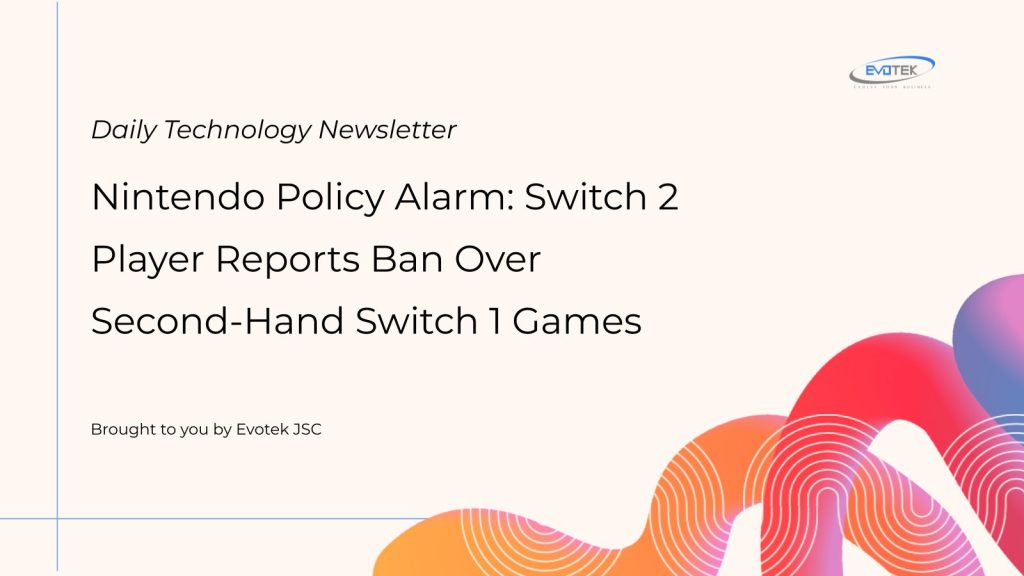Recent reports are sparking new concerns regarding Nintendo’s stringent policies governing the use of its latest console, the Switch 2. A specific incident involving a player being banned for playing second-hand Switch 1 games has put these policies under scrutiny, though a solution does appear to exist for now.
Nintendo has historically maintained a firm stance on consumer practices, often able to do so given the immense popularity of its consoles and games. Prior to this, worries emerged over the Switch 2’s capability to be permanently taken offline if users employed “mod carts,” often associated with pirated software.
The Controversial Ban: What Happened?
A new, distinct issue has surfaced from a Switch 2 owner who alleges their account was banned after playing second-hand Switch 1 games. These titles were reportedly acquired from Facebook Marketplace. According to the player, Nintendo seemingly detected the games were second-hand when they attempted to download necessary patches upon launching them on the Switch 2. Following this, the user claims they were banned.
While this particular incident hasn’t been widely replicated or reported by other users, it undeniably raises significant questions about future implications for players and the second-hand game market.
Resolution for the Banned Player
The Reddit user, known as dmanthey, who reported the ban, stated they successfully had their account unbanned. This was achieved by contacting Nintendo support and providing photographic evidence and listings from the Facebook Marketplace purchase of the cartridges. This suggests that with proof of legitimate acquisition, bans can be overturned.
Understanding Nintendo’s Stance
The exact reasoning behind Nintendo’s initial action remains somewhat unclear, as the buying and selling of used games is a common and legitimate practice within the gaming community. However, it’s likely Nintendo suspected these games to be pirated copies, an ongoing concern for the company. Nintendo is increasingly pushing for digital downloads with the Switch 2, yet physical game sales remain significantly more prevalent on Nintendo platforms compared to PlayStation and Xbox.
The prevalence of physical game sales naturally fosters a robust second-hand market. Given that Nintendo and retailers rarely discount games significantly, pre-owned titles are often essential for many fans to afford their desired game libraries. While traditional software piracy is relatively uncommon on Nintendo consoles, counterfeit cartridges are easily found on platforms like eBay. Furthermore, the “mod carts” that Nintendo has already targeted are indeed tools frequently used for playing pirated games.
Future Concerns and Account Unbanning
Should Nintendo begin banning players for simply owning and playing second-hand games, it could lead to considerable disruption and frustration within the online gaming community. There is a strong hope that Nintendo will clarify its position and refine its detection methods before such issues become widespread.
If you find your Nintendo account banned for any reason, there is generally a straightforward process to attempt an appeal. This process is often regarded as quicker and less arduous than dealing with support services from PlayStation or Xbox, particularly in the US. The user dmanthey reported a quick resolution by simply engaging in a live chat with a human representative from Nintendo support, resulting in an immediate unban.
Naturally, no player wants to repeatedly go through the process of contacting support every time they purchase a legitimate second-hand game. Clearer policies and improved detection systems from Nintendo would be highly beneficial for the player community.

 日本語
日本語 한국어
한국어 Tiếng Việt
Tiếng Việt 简体中文
简体中文